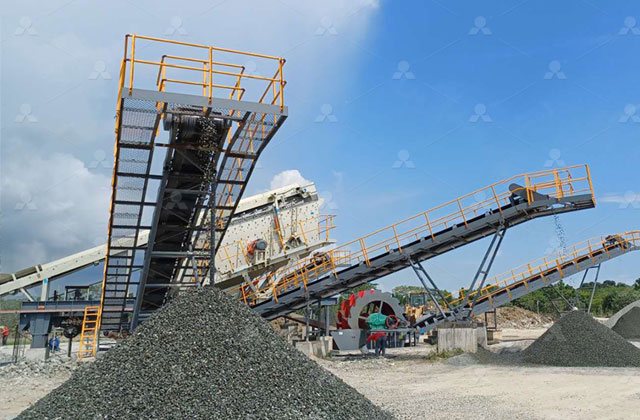Basalt is a versatile and durable material used in various industries, including construction, road building, and manufacturing. In Southeast Asia, basalt is commonly used for aggregate production, road construction, and decorative landscaping stones due to its toughness and abundance. The demand for basalt crushers is increasing in the region to process basalt into high-quality aggregate, sand, or other products. If you’re looking to purchase a basalt crusher in Southeast Asia, there are several factors to consider, including the type of crusher, capacity, brand, and after-sales service.

Types of Basalt Crushers
- Jaw Crushers: Jaw crushers are ideal for primary crushing of basalt. They are designed to handle high-capacity crushing, especially for large chunks of basalt. A jaw crusher is capable of breaking down basalt stones into smaller, manageable pieces, making it a great choice for aggregate production. The versatility and cost-effectiveness of jaw crushers make them popular in Southeast Asia.
- Cone Crushers: Cone crushers are often used in secondary or tertiary crushing. They are ideal for producing finer, more consistent material. With a powerful crushing mechanism and adjustable settings, cone crushers provide excellent shape and size control, making them suitable for producing aggregates used in high-performance concrete.
- Impact Crushers: Impact crushers are particularly effective for breaking down hard and brittle materials like basalt. The high-speed impact forces applied to the material help create fine aggregates, which are ideal for high-quality construction projects.
- Vertical Shaft Impact Crushers (VSI): VSI crushers are typically used for shaping and fine crushing. They are particularly effective for creating high-quality, machine-made sand from basalt. With a high crushing ratio and adjustable output size, VSI crushers offer a great solution for basalt sand production.
Factors to Consider When Buying a Basalt Crusher
- Capacity: The capacity of a crusher is crucial in determining its efficiency. For large-scale operations in Southeast Asia, a basalt crusher with a high production capacity (e.g., 100-500 tons per hour) is recommended. The right capacity depends on the scale of your operation and the specific project requirements.
- Durability: Basalt is a tough material, so the crusher used must be capable of withstanding the wear and tear associated with processing this type of rock. Look for crushers made from high-quality materials that offer longer service life and low maintenance costs.
- Technology and Features: The latest basalt crushers are equipped with advanced technology, such as automated systems for monitoring performance, reducing downtime, and ensuring smooth operation. Look for crushers with intelligent control systems, easy-to-use interfaces, and remote monitoring capabilities.
- After-Sales Service: After-sales support is crucial when purchasing heavy machinery like basalt crushers. Ensure that the supplier provides excellent customer support, including installation, maintenance, and spare parts services. Some manufacturers also offer warranties on their crushers, which adds an extra layer of security to your purchase.
Why Southeast Asia Needs Basalt Crushers
To meet the growing demand for basalt aggregates, efficient basalt crushers are needed. These crushers provide high crushing capacity, energy efficiency, and the ability to produce high-quality aggregate. Additionally, many Southeast Asian countries have abundant basalt reserves, making them a vital resource for local construction projects.
Reputable suppliers can provide a wide range of options, including both mobile and stationary crushers, to suit different types of basalt crushing applications. You can contact these suppliers for customized solutions, technical support, and competitive pricing.

